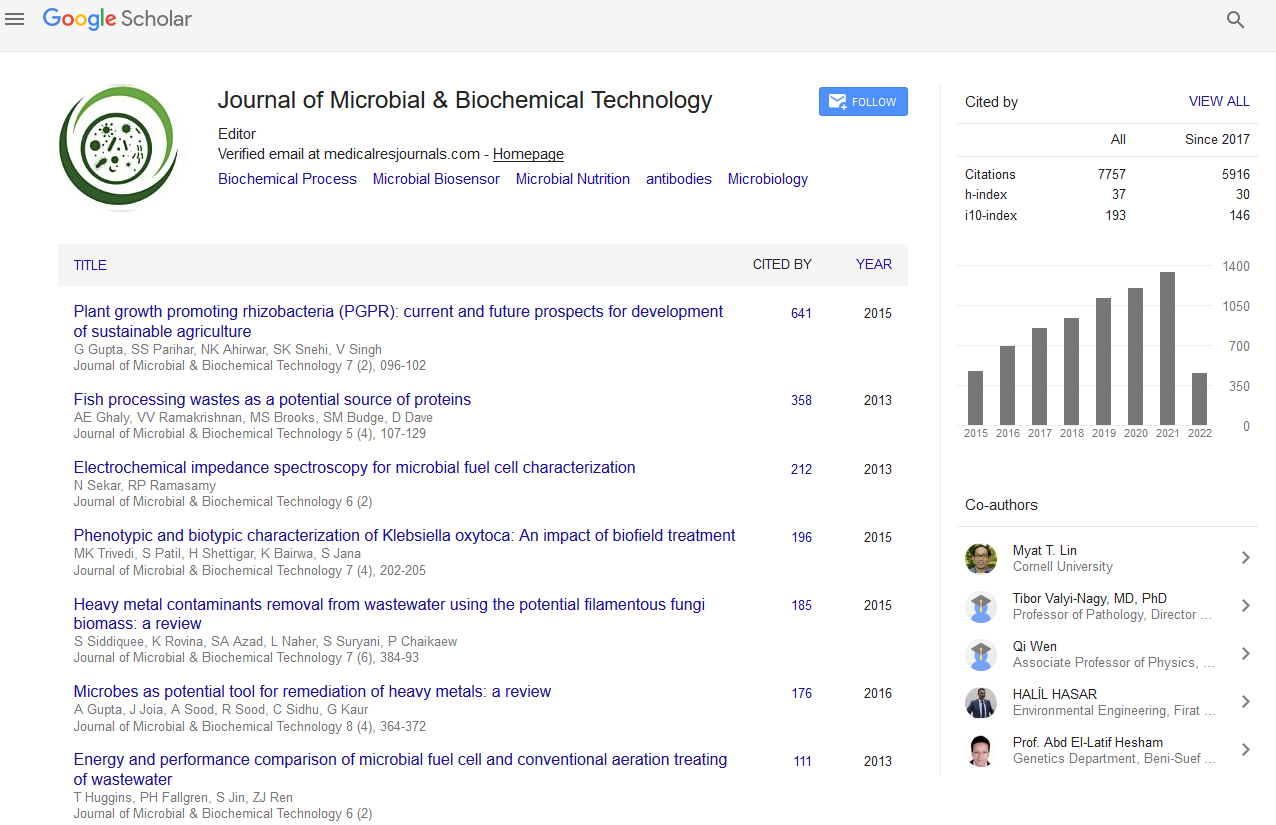PMC/PubMed Indexed Articles
Indexed In
- Academic Journals Database
- Genamics JournalSeek
- Academic Keys
- JournalTOCs
- China National Knowledge Infrastructure (CNKI)
- Scimago
- Access to Global Online Research in Agriculture (AGORA)
- Electronic Journals Library
- RefSeek
- Directory of Research Journal Indexing (DRJI)
- Hamdard University
- EBSCO A-Z
- OCLC- WorldCat
- SWB online catalog
- Virtual Library of Biology (vifabio)
- Publons
- MIAR
- University Grants Commission
- Geneva Foundation for Medical Education and Research
- Euro Pub
- Google Scholar
Useful Links
Share This Page
Journal Flyer

Open Access Journals
- Agri and Aquaculture
- Biochemistry
- Bioinformatics & Systems Biology
- Business & Management
- Chemistry
- Clinical Sciences
- Engineering
- Food & Nutrition
- General Science
- Genetics & Molecular Biology
- Immunology & Microbiology
- Medical Sciences
- Neuroscience & Psychology
- Nursing & Health Care
- Pharmaceutical Sciences
Screening of serodiagnostic peptide regions that zika virus nonstructural protein1
Joint Event on 4th World Congress and Expo on Applied Microbiology & 2nd International Conference on Food Microbiology
November 29-December 01, 2017 Madrid, Spain
Hee Jung Lee
Konkuk University, South Korea
Posters & Accepted Abstracts: J Microb Biochem Technol
Abstract:
Zika virus (ZIKV) is a mosquito-borne flavivirus which has recently emerged globally and poses a major threat to public health. A diagnostic test that can detect past ZIKV infection is required for monitoring the current ZIKV outbreak. Infection by ZIKV can be difficult to distinguish from infection by other flaviviruses due to high sequence similarity, serum antibody cross-reactivity, and virus co-circulation in endemic areas. In addition to ZIKV E as the major structural proteins, ZIKV NS1 is an antigenic protein that elicits protective antibody responses in animals and can be used for the serological diagnosis of ZIKV infection. Although more than 90% of epitopes are estimated to be conformational, identification of the linear epitope from sero-positive samples is important to the development of diagnostics. In this study, in order to identify ZIKV NS1 specific peptide regions that could be used as serology reagents, we have analyses to identify amino acid residues that different ZIKV lineage and tested antibody affinity using 35 of human sera (ZIKV positives and negatives) with each ZIKV NS1 specific peptides. These sensitive and specific peptide regions suggested as useful antigens for sero-prevalence studies to better distinguish between flaviviruses, to develop improved serological diagnostic methods for detecting ZIKV infection.
Biography :
Hee Jung Lee got her PhD degree in Konkuk University, Seoul, South Korea in 2010 and Postdoctoral studies in Dept. Animal Biothechnology and Institute of Glocal Diasease Control, Konkuk University from 2010 to 2017. Since 2017, she has worked in Dept. Biomedical Science and Engineering, Konkuk University as Associate Professor. She has published more than 20 SCI(E) papers as first author. She has also registered for 11 patents (5 of them are PCT patents). Her research interests are mainly focused on the development of vaccines, antiviral drugs and diagnosis against HPV, MERS-CoV, ZIKV, CHIKV and Henipavirus.


